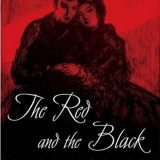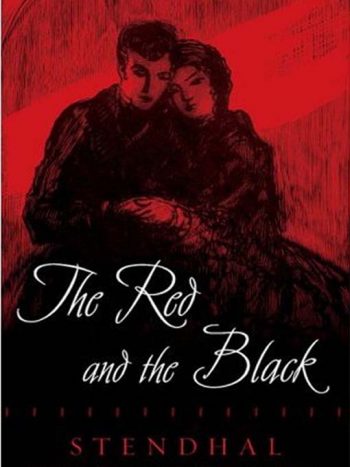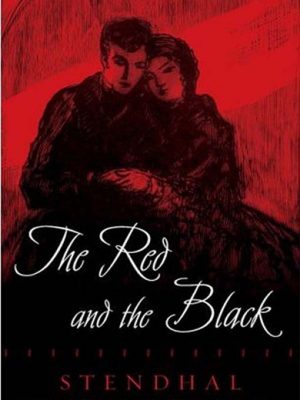The Red and the Black – Stendhal – 1830
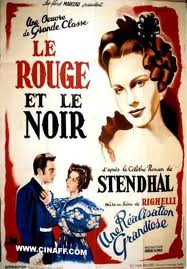
Stendhal’s Disease – Posted by Steven on 4/11/2005, 7:17:43
This month’s author has the unusual distinction of having a medical syndrome named in his honor.
Stendhal was a great lover of Italian art and culture. On a visit to Florence he toured the Basilica of Santa Croce, where the walls are covered by the frescoes of Giotto, adorned with sculpture by Donatello and others, and lined with the tombs of some of Italy’s greatest men, including Michelangelo and Galileo. Stendhal was overcome by emotion and collapsed in a faint, probably from hyperventilation.
About a dozen tourists per year are similarly affected by the wonders of Santa Croce and the other attractions in Florence – some requiring hospitalization and even psychiatric treatment. Florentine’s now call this condition “Stendhal’s Disease” after its most celebrated sufferer.
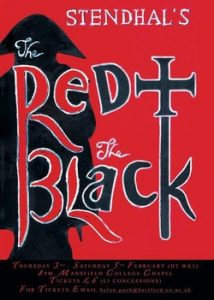
Comparing Julian to Frédéric – Posted by Steven on 8/12/2005, 22:02:45
It is especially interesting to be reading The Red and the Black soon after Gustave Flaubert’s Sentimental Education because the principal characters offer such similarities and contrasts.
They are both selfish, unprincipled young men who come from small towns to Paris in the early 19th Century. Each falls in love with a married woman and suffers in various ways from the consequenses of that obsession.
They are strikingly different, however, in that Julian Sorel is ambitious, energetic, and capable, whereas Frederic Moreau, despite vague dreams of fame and fortune, is chiefly interested in having a good time at someone else’s expense.
Of the two, I think we can come closer to sympathizing with Julian, if for no other reason than that he raises himself up from a much lower station in society, however unscrupulously, with an enviable amount of talent and cunning. But such single-mindedness is best admired from a distance – if I had to pick between the two, I’d rather have Frederic over for dinner.
Steven
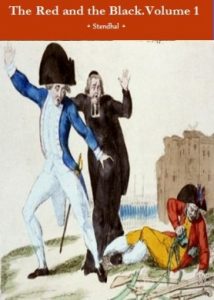
Posted by Lale on 9/12/2005, 12:38:26
I am reading the book for the second time (I had read it 6 years ago) and I am amazed by the decided hypocrisy of a young person. At Julien’s age Hemingway makes the conscious decision to earn his living by writing. Julien decides to earn his by hypocrisy.
: Each falls in love with a married woman and suffers in
: various ways from the consequenses of that obsession.
Julien didn’t even fall in love, not at first anyway. It was just a conquer for him. He may have fallen in love eventually but his motivation, initially, was not love.
And then, when they got separated (Julien was forced to leave town and go to Besancon to enter a seminary), he didn’t think of her for a second. During his first hours in Besancon he declared love to the first girl he saw. At the café:
“I feel I love you with the most passionate love.”
Poor Mme de Rénal did not even enter his thoughts.
And what do you think of M. de Renal’s reaction when he receives the two anonymous letters, one real and one manufactured by his wife? His only concern is losing prestige and money. He is not heart broken like a normal, loving, caring husband would be. In France, in those days, the reaction to infidelity was quite different than what it is today. The society is basically amused when they hear of a woman’s betrayal. They just make fun of the man (cuckhold). And the husband himself has rather interesting concerns.
I want to ask something: The chapter before Julien leaves for Besancon (Chapter 23, “The woes of a civil servant”); what exactly is happening there? What is the deal with the “auction of the large old house which had so often been mentioned by name in M. de Rénal’s conversations with his wife.” What exactly is happening there? Why is the sale of this house important? How is it related to Julien and Mme de Rénal’s affair?
Lale
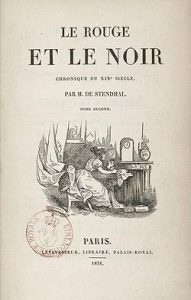
Posted by Guillermo Maynez on 9/12/2005, 14:01:53
Interesting. In fact, one of my projects for next year is to write an essay comparing “three great french novels of apprenticeship of the XIX Century”: Red and the Black, Sentimental Education and the Lilly of the Valley, by Balzac. Anyone here has read this last? It has a young hero comparable to Sorel and Frederic. I think Sorel is an unscrupulous social climber. Now, it’s OK to try and better your position in life, especially when you are born at the lower steps, but there are ways and ways of doing it. You can achieve it by studying and working hard, by mastering some craft while at the same time cultivating important relationships in an honest way. Or you can do it the Sorel way (sadly, very common) and climb just by using people and then discarding them wheh they become useless. Frederic is only an idle junior dreaming but not doing.
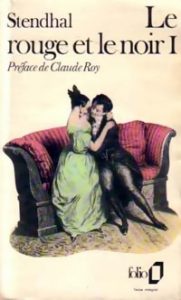
Posted by Steven on 9/12/2005, 19:27:43
: I want to ask something. The chapter before Julien
: leaves for Besancon (Chapter 23, “The woes of a
: civil servant”); what exactly is happening there?
: What is the deal with the “auction of the large
: old house which had so often been mentioned by name in
: M. de Renal’s conversations with his wife.” What
: exactly is happening there? Why is the sale of this
: house important? How is it related to Julien and Mme
: de Rénal’s affair?
My interpretation was that the sale of the house to one of the mayor’s friends for much less than it was worth demonstrated the corruption in the system that Julien hated. At the sale, Julien is identified by others as being part of that system, which must gall him, even though that is the role he has chosen to play. He takes his private vengeance by seducing the mayor’s wife.
The novel is set in what was, to Stendhal, the present day, and it is as much a commentary on the evils of the Bourbon regime as it is the story of Julien’s character. Stendhal’s readership probably saw Julien more as a victim and less as a villain than we do, and they may have felt more outrage at such episodes as the sale of the house than at any of Julien’s bed-hopping.
Regarding the reaction to marital infidelity, weren’t most marriages of the time arranged (at least among middle and upper classes)? The husband wasn’t always expected to love his wife, nor she him. The chief concern was that the inheritance of the man’s estate should not be clouded by the wife’s bearing a son that might not be his.
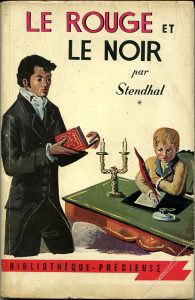
Posted by Christopher on 9/12/2005, 21:35:04
: Regarding the reaction to marital infidelity, weren’t most marriages of the time arranged (at least
: among middle and upper classes)? The husband wasn’t always expected to love his wife,
: nor she him. The chief concern was that the inheritance of the man’s estate
: should not be clouded by the wife’s bearing a son that might not be his.
Not to mention marriage among relatives in order to keep the money in the family.
C.
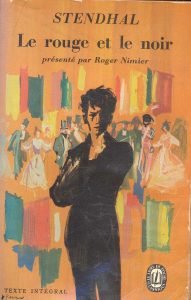
Stendhal: Romantic or Realist? ~ Posted by Steven on 17/12/2005, 9:19:24
Browsing assorted reference works and articles, I see Stendhal listed variously as a “Romantic” author, a “Realist,” or a “Romantic-Realist.” I have only a general understanding of those terms, but would have considered The Red and the Black to belong in the Romantic category. What are the elements in the novel that would have led Émile Zola and others to call Stendhal the first of the Realists?
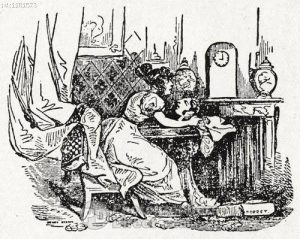
Posted by Guillermo Maynez on 17/12/2005, 11:09:30
I have read most of Stendhal’s work and basically I would call him a transitional writer, between Romanticism and Realism, but certainly more inclined to the latter. Romantic elements can be found in his Italian Chronicles and in “The Charterhouse of Parma”, for example: the imprisonment of Fabrizio and his love affair with Clelia, when the lovers fell in for each other, one in the tower, the other in her balcony. “Charterhouse” can be said to be a romantic story realistically treated. “Armance” is another Romantic story, with the hero dying Lord Byron’s way. But, and this is a big objection, “Red and the Black” is certainly a fully realistic work. There are no heroes and the love affairs clearly belong to this world, not the world of castles, chaste damisels and sword fights. R&B is totally realistic and every romantic feature has been scraped from the surface, revealing the ruthless happenings of the cold world of politics, intrigue and revenge.
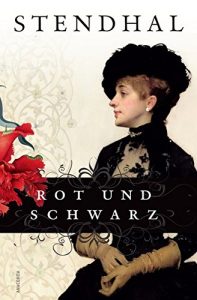
Posted by Lale on 17/12/2005, 11:41:50
: R&B is totally realistic and every romantic
: feature has been scraped from the surface,
Oh, I don’t know. The episode where Mme de Renal hid Julien in her bedroom and then in another bedroom of the house, when her husband was at home and all the servants were up and about, seemed pretty ridiculous to me and something that could happen only in a “romantic” novel. Mme de Renal bringing scraps of food for Julien in her pockets…
In general, I think, there were some of the romantic elements: Julien crying, for instance. If a man cries freely just because when they are touched by the sentiments of a woman or a child, or by the kindness of another man, then that is an indication of romanticism.
The part when one of the children was sick and Mme de Renal thought she was being punished by God, and even contemplated confessing, was a very strong element of romanticism. This is in fact found also in Sentimental Education. The introduction in my copy of Sentimental Education talks about this similarity between the two books and, I believe, identifies it as a sign of romantic cliché.
So, I do think romanticism is present in this book.
Lale
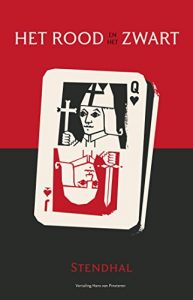
Posted by Guillermo Maynez on 18/12/2005, 11:53:05
Lale: I think that we are not using the same definition of “romantic”. I was using the concept in its , let’s say, “academic” definition. That is, the idealization of characters, the introduction of the mysterious and supernatural as cause of worldly effects, the ethereal characterization of weather and surroundings, etc. “Realism” does not mean the elimination of sentimentality or emotion, which are clearly present in the book, but it entails a view of life as devoid of the supernatural and idealized concepts. In my view, the inclusion of emotion does not qualify to define a story as “romantic”. Let me give you an example: in this definition, “Anna Karenina” is a realistic novel, not a Romantic one. The exacerbation of feeling and emotion would give you a romantic story, e.g. “Werther”.

Posted by Lale on 18/12/2005, 15:50:25
: the inclusion of emotion does not qualify to define a story as “romantic”.
I wasn’t talking about the “inclusion of emotion”, I was talking about the symbols of romanticism. There are, in the book, some formulas that are usually attributed to romanticism.
Lale
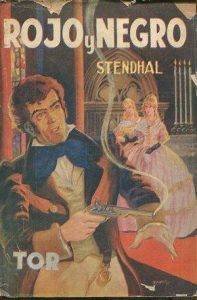
Posted by Steven on 18/12/2005, 18:57:30
Lale and Guillermo – that you don’t fully agree isn’t surprising. One thing I can conclude from your comments and from further research is that Stendhal defies categorization, and that is part of his greatness.
The Red and the Black has many of the general characteristics of a Romantic novel: the power of the individual, the triumph of feelings over intellect, and the corruption of entrenched authority. Julien Sorel is a man of exceptional, almost Napoleonic, talent, which certainly wouldn’t be typical of Realism.
On the other hand, Stendhal rejects the cliches of Romaticism: exotic locations, the supernatural, the suspenseful. He takes pains to set the scene as the present day in a town just down the road. These are certainly the hallmarks of Realism, even though no one knew to call it that at the time.
In other ways, The Red and the Black fits neither mold. Stendhal is neither sympathetic to his character, as in Romanticism, nor neutral, as in Realism, but reacts hot and cold to him as a real person would. He slips in and out of first person, just as the tense slips in and out of present tense, to give a sense of shifting perspectives. In some respects he was a century ahead of his time.
P.S.
Not all of the observations in my last post are my own – I did not become an expert in literary movements overnight – but I browsed so many different articles that I couldn’t handily cite specific sources.
S.
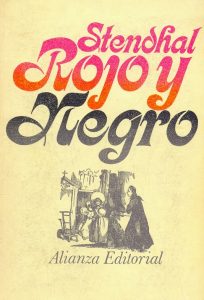
Posted by Lale on 6/1/2006, 18:25:31
I found a very nice study of R&B at http://www.greatbooks.org/typ/230.0.html
Discussion Questions
1. According to the novel, is Mme. de Rénal better off after her affair with Julien? (pp. 166-167)
2. Why does Stendhal use military metaphors (“battle,” “campaign,” etc.) to describe Julien’s romantic conquests?
3. Does the narrator consider Julien’s sensitive pride a virtue or a fault?
4. After one of his conversations with Mathilde de La Mole, Julien asks himself “Must one steal? must one sell oneself?” (p. 312) What answers does the novel as a whole suggest to these questions?
5. Why do anonymous letters play such an important role in the novel?
6. At what point, if any, does Mathilde begin to genuinely care for Julien? Does he ever genuinely care for her?
7. Why is escaping boredom such a strong motivation for both Julien and Mathilde?
8. What distinction does the novel draw between “love generated in the mind” and “true love”? (p. 373)
9. Why does Julien shoot Mme. de Rénal? (pp. 469-471) According to the novel, to what extent is he to blame for doing so?
10. Why does Julien’s love for Mme. de Rénal ultimately prove to be stronger than his love for Mathilde?
11. While awaiting his trial, why does Julien derive such pleasure from solitude?
12. At his trial, why is Julien able to speak spontaneously for the first time in his life?
13. Are we intended to think that Julien is right when he thinks that he is still a hypocrite? (p. 524)
14. Why does Mathilde take Julien’s head and bury it?
15. Who are the “happy few” to which the novel is dedicated? (p. 532)
For Further Reflection
1. Is it possible to achieve worldly success without sacrificing one’s integrity?
2. To what extent does romantic love depend on mystery or deception?
3. Are the interests of a society and those of an individual necessarily in conflict?
~
Posted by Steven on 6/1/2006, 21:36:29
Now I must confess that I read R&B about a year ago, and didn’t re-read it with the group, as it was still relatively fresh in my mind. Also, my edition is different and the page numbers don’t match those in the questions. With those disclaimers out of the way, I’ll try the first few discussion questions, then jump to the reflections.
: Discussion Questions
:
: 1. According to the novel, is Mme. de Renal
: better off after her affair with Julien?
Like so much in the novel, this one gets a yes/no answer. On the negative side, she is miserable at losing Julien, feels guilt for her infidelity, and anxiety over the possibility of discovery. On the positive side, she has been sensually awakened and given a huge boost to her self-esteem. She discovers she can outwit her husband with ease and becomes a person in her own right rather than just the Mayor’s wife.
: 2. Why does Stendhal use military metaphors
: (“battle,” “campaign,” etc.) to
: describe Julien’s romantic conquests?
Stendhal is showing not only Julien’s devotion to Napoleon, but also the cold and calculated nature of his affairs – they are planned and executed as he felt Napoleon would have planned his campaigns.
: 3. Does the narrator consider Julien’s sensitive
: pride a virtue or a fault?
Another yes/no. The narrator displays a human tendency to be carried away with the moment with little regard for consistency. The pride is a virtue when it shows Julien’s force of character, a fault when it becomes pettiness.
: 4. After one of his conversations with Mathilde de
: La Mole, Julien asks himself “Must one steal?
: must one sell oneself?” (p. 312) What answers
: does the novel as a whole suggest to these questions?
I’m guessing that Stendhal would say when the system itself is corrupt, the end justifies the means. Julien is a man of ability doomed by a static social order to a life of obsurity unless he breaks the rules. In the end, he overcomes the system, but can’t overcome himself.
: 5. Why do anonymous letters play such an important
: role in the novel?
Partly, at least, because they demonstrate the importance of image over substance. It doesn’t matter who the writer is, or whether the allegations are true, for the appearance of a scandal is as bad or worse than the reality.
: 1. Is it possible to achieve worldly success
: without sacrificing one’s integrity?
I think Stendhal would answer “no,” in a corrupt society such as Julien’s. But as a Bonapartist he (and Julien) would have believed in a social order based on merit where the deserving would find success not only possible but inevitable.
: 2. To what extent does romantic love depend on
: mystery or deception?
In the context of the time, with arranged marriages and class barriers, romantic love was, almost by definition, illicit. So mystery and deception were part of the game by default. Romantic love entails tension between selfishness and sacrifice, and can’t be sustained in a relationship where there is complete openness and trust. To put it in more positive terms, even at its mildest, romantic love depends upon a sense of anticipation, suspense, and surprise. So deception is essential, even if it is only in play.
: 3. Are the interests of a society and those of an
: individual necessarily in conflict?
This is similar to question #1. The Napoleonic ideal was a society where there were no barriers to individual accomplishment, and no limits to an individual’s success. Stendhal would probably have said “no,” given the right type of society.
What makes R&B such a great novel is the ambiguity about Julien’s actions and his downfall. He lies and steals his way to the top, only to have his world collapse. Was Julien a wicked man being punished for his evil ways? Was he a victim of society, justly using that society’s own corrupt methods, only to meet inevitable doom because the system won’t allow success? Or was a very able individual, but just not quite able enough, to reach the goal that was within his grasp?
~
Posted by Guillermo Maynez on 18/1/2006, 14:36:45
Like some of you, I read this book some time ago, but it’s still fresh in my mind and moreover I recently watched an excellent adaptation for TV made by the BBC. I’ll try to give my thoughts on the questions left unanswered by Steve.
: 6. At what point, if any, does Mathilde begin to
: genuinely care for Julien? Does he ever genuinely care for her?
I can’t remember the exact moment, but anyway I think for Mathilde Julien is kind of a hero, a self-made man who defies the system and is on his way to success based on merit. Young girls tend to fall for that kind of guy. Of course, she knows nothing or very little about his past. Julien may car for her, but in a selfish way. It’s hard to have a strong passion for the person whom you’re using as a step in a ladder.
: 7. Why is escaping boredom such a strong motivation
: for both Julien and Mathilde?
Because life used to be boring for many people and boredom can kill you.
: 8. What distinction does the novel draw between
: “love generated in the mind” and “true
: love”? (p. 373)
Ha! I don’t remember, but the former is infatuation and the latter includes a positive response from the beloved one.
: 9. Why does Julien shoot Mme. de RÉnal? (pp. 469) According to the novel, to what extent is
: he to blame for doing so?
Julien shoots Mme. de Renal for having destroyed his life.
: 10. Why does Julien’s love for Mme. de Rénal
: ultimately prove to be stronger than his love for Mathilde?
Because we have fond memories from our youths and tend to idealize them.
: 11. While awaiting his trial, why does Julien derive
: such pleasure from solitude?
Because it’s hard to feel at ease among people when you have been socially degraded.
: 12. At his trial, why is Julien able to speak
: spontaneously for the first time in his life?
Because he has nothing to lose anymore.
: 13. Are we intended to think that Julien is right
: when he thinks that he is still a hypocrite? (p. 524)
Yes.
: 14. Why does Mathilde take Julien’s head and bury it?
Because in burying it she’s burying her innocence and lost illusions.
: 15. Who are the “happy few” to which the novel is dedicated? (p. 532)
The few people who actually read a book, think about it and analyze it. Us.
A final word: this novel is so great because there are no caricatures. Every character’s motivations and actions are complex, believable. Stendhal presents us with a real world where there are no knights in shining armor nor submissive princesses. People cheat and deceive. Many people are everyday trying to climb the social ladder. Some people think the system (as Steven puts it so aptly) is wired against them and that gives them a justification for corruption. Alas, sometimes the system IS wired against you and Julien’s times were no easy equality arcadia.
It’s hard to like Julien, but it’s easy to understand him. For further reflections, you can check my brief review in Amazon.
~
Posted by Steven on 19/1/2006, 10:07:26
A couple of weeks ago I read The Sailor Who Fell from Grace with the Sea by Yukio Mishima. It just dawned on me that one of the characters in it – the juvenile gang leader known only as “the chief” – is a reincarnation of Julien Sorel.
The setting is Japan after WWII. The chief blames his country’s disgrace upon the weakness of its authority figures (“fathers” in general rather than specific leaders). He develops a personal philosphy that ruthless amorality is the path to restore strength and virtue. Unlike Julien he acts through others, but his beliefs and motivation are the same. (There’s no parallel to Julien’s tragic love interests – that part of the chief’s life is outside the scope of the story.)
There is also a very pronounced Oedipal theme to The Sailor Who Fell from Grace, which makes me see a suggestion of Oedipus in The Red and the Black.
The author, Mishima, was very much like his character “the chief,” which makes him something of a real-life Julien Sorel, but acting on a broader stage. He started a cult based on heroic individualism and physical fitness, raised a private army and even attempted a coup before commiting ritual suicide.
Despite a difference in ages, Mishima and Kawabata were close friends. It’s hard, though, to imagine the author of something as poetic and gentle as Snow Country being close to the author of a brutal work like The Sailor Who Fell from Grace with the Sea.
If you haven’t read it, I highly recommend Mishima’s book. Be warned, though, that there is a very graphic passage that will be especially difficult for cat lovers to read.
Steven
~
Reviewed by: Avi Date: 10 April 2003
I read the book in English. It made me want to read it in French. The hero of the book, Julien Sorel is caught up in the ultimate conflict of the mind and the heart. His head tells him that he should be ambitious, materially successful at the highest level, and in his eyes equal to his hero, Napolean. His heart wants happiness and love, but even that love is governed by the pre-requisites his head sets for it.
Stendhal creates situations that are perhaps akin to us all, where ambition and high goal get equated with the happiness we pursue in life.
Is this how life turns out?…well, read the book 🙂
The way he follows Julien’s mind reminds of the way Dostoevsky wrote Crime and Punishment. (One reason I wanted to learn Russian)


